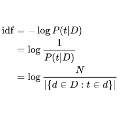Alzheimers disease is a fatal progressive brain disorder that worsens with time. It is high time we have inexpensive and quick clinical diagnostic techniques for early detection and care. In previous studies, various Machine Learning techniques and Pre-trained Deep Learning models have been used in conjunction with the extraction of various acoustic and linguistic features. Our study focuses on three models for the classification task in the ADReSS (The Alzheimers Dementia Recognition through Spontaneous Speech) 2021 Challenge. We use the well-balanced dataset provided by the ADReSS Challenge for training and validating our models. Model 1 uses various acoustic features from the eGeMAPs feature-set, Model 2 uses various linguistic features that we generated from auto-generated transcripts and Model 3 uses the auto-generated transcripts directly to extract features using a Pre-trained BERT and TF-IDF. These models are described in detail in the models section.
翻译:阿尔茨海默氏病是一种致命的累进性脑病,随着时间的流逝而恶化,现在是我们拥有廉价和快速的临床诊断技术进行早期检测和护理的时候了。在以往的研究中,各种机器学习技术和预先培训的深层学习模型与各种声学和语言特征的提取一起使用。我们的研究侧重于ADRESS(通过自发讲话识别阿尔茨海默氏痴呆症)2021挑战中的三种分类任务模式。我们使用ADRESS挑战提供的平衡的数据集来培训和验证我们的模型。模型1使用来自eGEMAPs地物集的各种声学特征,模型2使用我们从自动生成的记录和模型3中生成的各种语言特征,直接使用自动生成的誊本来利用预先培训的BERT和TF-IDF的特征进行提取。这些模型在模型部分中有详细描述。





